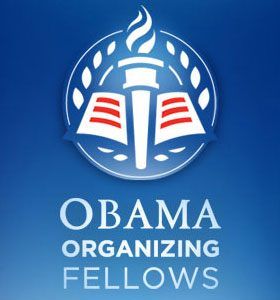Wednesday, October 17, 2012
Can a Black Man Defend Himself at Home?
Can a Black Man Defend Himself at Home?
The NAACP and activists fight for the release of a black Georgia man who shot a man on his lawn.
By: Aisha I. Jefferson | Posted: September 12, 2012 at 12:38 AM
NAACP President Benjamin Todd Jealous, second from left (Charles Cook/NAACP)
(The Root) -- Members of the NAACP -- including its president and CEO, Benjamin Todd Jealous -- along with local politicians and other activists, addressed a small crowd of journalists in Atlanta on Monday in an effort to bring attention to the case of a black Georgia man serving a life sentence for killing a white man who was trespassing on his property.
Despite Kennesaw, Ga., police detectives declaring in 2005 that John McNeil , 46, acted in self-defense, Cobb County District Attorney Pat Head decided a year later to try the case . McNeil was sentenced in November 2006.
"If this can happen to John McNeil, then it can happen to [Georgia NAACP President] Ed DuBose, it can happen to William Barber, it can happen to Ben Jealous. It can happen to any black man standing out here or standing anywhere in America, no matter how much good you've done or how right you are," the Rev. William Barber, president of the North Carolina NAACP, told the crowd in front of the Georgia State Capitol. Barber, a longtime friend of McNeil's, along with Jealous and other NAACP members, went to see him in prison before the press conference.
The "it" relates to events that took place Dec. 6, 2005, when McNeil arrived home after his teenage son called him about an unfamiliar man lurking about their property. According to testimony, the man, Brian Epp, a hired contractor with whom McNeil had past difficulties, had already pulled a knife on the teenager.
Epp refused to leave, and McNeil, who had called 911, fired a warning shot into the ground. Epp then charged toward McNeil while reaching into his pocket. McNeil fatally shot him in the head at close range. Court documents state that a pocketknife was clipped inside Epp's pants pocket. McNeil's neighbors who witnessed the incident backed his story.
Kennesaw police detectives investigated the case, decided that McNeil had acted in self-defense and didn't charge him. McNeil's self-defense claim is supported by Georgia's "castle doctrine" law , which allows an individual to use deadly force to protect his or her home, or anyone inside it, from a violent trespasser.
McNeil and his family thought the worst was over, until Pat Head decided nearly a year later to pursue prosecution. Although the Kennesaw Police Department refused to arrest McNeil, the Cobb County Sheriff's Office did, under Head's advisement, according to NAACP members.
During the trial, McNeil's neighbors, the two senior detectives investigating the case and a couple who said that they felt threatened by Epp when they hired him to do work all testified in McNeil's defense. All of those individuals are white.
From: Benjamin Jealous, NAACP
Date: Wed, Oct 17, 2012 at 12:55 PM
Subject: John McNeil could be heading home
To: Mary White
Great news — a recent decision by the Georgia Superior Court has paved the way for John McNeil to be released from prison in a couple of weeks.
Only one thing stands in John's way. Georgia Attorney General Sam Olens has twelve more days to appeal the decision of the Superior Court. You previously took action to call for justice for John McNeil — now we need everyone you know to do the same.
Tell everyone you know to sign our petition urging Georgia Attorney General Sam Olens not to appeal the Georgia Superior Court decision so John McNeil can go home:
http://action.naacp.org/send-john-home
The Georgia Superior Court saw the same thing you did when you signed our petition in support of John. They cited multiple errors at trial in granting John's petition for habeas corpus. These included ineffective counsel and a lack of proper instruction to the jury on a person's right in Georgia to use force to defend himself or another person from a violent attack.
John's ailing wife Anita was thrilled with the court's decision, "I know we still have a journey in front of us, but today we smile, for we have won. We are thankful first to God and then to the judge. She looked at the case and saw it for what it is."
I visited John in prison last month with North Carolina State President Reverend Barber and Georgia State Conference President Edward Dubose. His spirits were high because he knows how hard we are fighting on his behalf.
This is the final step towards righting the wrong of the Cobb County DA who prosecuted a father for defending his family on his own property. Together, we can send John home, where he belongs.
Tell your family and friends to sign the petition in support of justice for John:
http://action.naacp.org/send-john-home
Thank you,
Ben
Benjamin Todd Jealous
President and CEO
NAACP
ATLANTA – The wife of a successful African-American businessman, who is serving a life sentence for killing a trespasser who was threatening his family, has said she will continue to fight for his release.
“It is hard to think he got convicted,” John McNeil’s wife, Anita, 46, told theGrio. “You expect the law to be on the side of the person defending themselves and not the aggressor.”
In fact, initially the law was on his side. Following an initial investigation, Kennesaw, Ga., detectives concluded in 2005 that John McNeil, 45, acted in self-defense.
The case relates to events on December 6, 2005, when McNeil received a distress call from his teenage son that a man was lurking around in their backyard.
“John called 911 and told the police he was on his way home,” said his wife, who is living with advanced stage cancer. According to testimony, the man, Brian Epp, a hired contractor with whom McNeil had past disagreements, had already pulled out a knife on McNeil’s 19-year-old son.
When McNeil returned home, Epp, who is white, refused to leave, despite being asked several times. McNeil and eye-witnesses testified that he fired a warning shot but when Epp charged towards him with his hand in his pocket he shot out in self-defense.
Despite the conclusion of Kennesaw police detectives that McNeil committed no crime, Cobb County District Attorney Pat Head decided nearly a year later to charge him with murder. As a result, McNeil was sentenced to life in prison in November 2006.
Ironically, Georgia’s “Castle Doctrine” permits individuals to defend themselves with a weapon if they feel threatened on their own property without having to wait for the situation to escalate.
The case has led activists to wonder why a family man, with no prior criminal convictions, could on the basis of the evidence and witness accounts, be sentenced to a life behind bars.
So much so that the NAACP is calling for a reexamination of the case, which they categorize as a blatant miscarriage of justice. “The events of this case can only be described as tragic,” said NAACP President Benjamin Jealous.
“But that tragedy has been compounded by Georgia’s decision to prosecute and convict a dedicated father for protecting his family and himself on his own property,” added Jealous.
In fact, those who have met John McNeil describe him as a mild-mannered, family man, who adored his wife and cherished his two sons.
“In one of the interviews I had with him he was choked up and emotional when talking
ak to him he comes across as very credible.”
In many ways, McNeil’s life was typical of a hard-working American. A graduate from North Carolina’s Elizabeth City State University, he was a businessman and community volunteer, whose main priority was taking care of his family.
Last week in Georgia, the NAACP, alongside other activists and local elected officials, addressed a crowd of journalists in a bid to reunite McNeil with his family. They also plan to hold a rally on the anniversary of his sentence in November.
“The John McNeil case is the best example of unequal justice, not just in Georgia, but in America,” said DuBose. “Whether it is a black man trying to defend his property or he’s a victim of circumstance, there’s not justice.”
Earlier this year, John McNeil filed a writ for Habeas Corpus relief arguing that his conviction was unsound. His petition is pending before the Baldwin County, Georgia Superior Court.
Mark Yurachek, John’s McNeil’s attorney, said, “It’s fair to say we have made what we feel is a compelling case for everyone to believe at the minimum my client deserves new trial, if not a release.”
Subscribe to:
Posts (Atom)










































